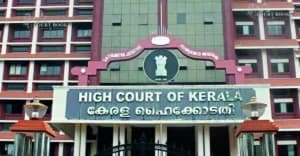BJP leader Ashwini Kumar Upadhyay has filed a writ petition before the Supreme Court, urging the Court to direct the Election Commission of India (ECI) and the Central and State Governments to carry out regular intensive revisions in the voter list - especially before all parliamentary, state assembly and local body elections.
The petition emphasised that such amendments are necessary to prevent voter fraud and ensure that only Indian citizens participate in the electoral process. It also sought action against individuals who help infiltrators by providing forged documents.
Read also: All Opposition Party Leaders Move Supreme Court Against Bihar Voter List Revision
"It is the duty of the Centre, States and the ECI to conduct a special, thorough revision of the electoral rolls and send a strong message that India is determined to fight against illegal infiltration… betrayal of the public trust will no longer be tolerated," the petition said.
Upadhyay mentioned the petition before a bench of Justices Sudhanshu Dhulia and Joymalya Bagchi, seeking urgent listing along with similar petitions related to Bihar's voter lists.
The bench, however, directed the petitioner to first rectify the procedural defects:
"Let the petitioner rectify the defects, and thereafter let the Registry do the needful," the court ordered.
Read also: Supreme Court Stays Goa Sports Authority's Coach Selection After Woman Alleges Bias in Test
Several petitions have already been filed in the Supreme Court against the ECI's special in-depth review in Bihar, where state elections are expected to be held soon. Upadhyay's petition supports such revisions and claims that Bihar, which has 243 assembly constituencies, has 8,000 to 10,000 fake or duplicate entries in every constituency. The petition argues that even 2,000 to 3,000 wrong entries can greatly impact the election results.
The petition has been filed through advocate Ashwani Dubey and names the Union of India, Ministries of Home and Law & Justice, all state governments, Union Territories, Election Commission and Law Commission as respondents.
The petition raises serious concerns over foreign infiltrators - alleging their involvement in electoral manipulation and policy influence. It claims:
“Due to large-scale illegal infiltration, fraudulent religious conversions and population explosion, the demography of 200 districts and 1,500 tehsils has changed.”
Read also: Why Supreme Court Rejected MBBS Student's Plea Against Termination of Admission, Then Sent to High Court
Citing Article 324(1) of the Constitution, the petition highlights the ECI’s constitutional duty to ensure free and fair elections, as also Article 326 and Section 21(3) of the Representation of the People Act, 1950, which allows for special electoral revisions if necessary.
It alleges that Pakistani, Afghani, Bangladeshi and Rohingya infiltrators are significantly influencing election results.
“Infiltrators can alter election results by a very narrow margin, pose a threat to national security and erode public confidence.”
According to the petition, infiltration leads to demographic disruption, law enforcement problems and acts as a mask for criminal and anti-national activities such as terrorism, smuggling and human trafficking. The petitioner also criticised the states for not invoking the National Security Act (NSA) against infiltrators and their supporters.
Another major concern is that Forms 6 and 8 under the Registration of Voters Rules, 1960 do not require proof of citizenship, while only Indian citizens have the right to vote under Article 326 and the Representation of the People Act, 1951.
Read also: CJAR Urges Supreme Court to Question Centre's Selective Delay in Judicial Appointments, Calls It
The petition refers to the 1997 Assam model, where door-to-door verification flagged doubtful voters (D-voters), whose cases were later assessed by Foreigners' Tribunals, thereby ensuring natural justice.
Highlighting the Seemanchal region of Bihar, the petition claimed:
“Illegal immigration has led to a disproportionate increase in population, with the Muslim population being 47%, while the state average is 18%.”
The petition argued that unchecked infiltration in areas like Seemanchal is eroding the rule of law, putting pressure on resources and distorting the democratic process.
Case Number: Diary No. 36126/2025
Case Title: Ashwini Kumar Upadhyay vs Union of India















